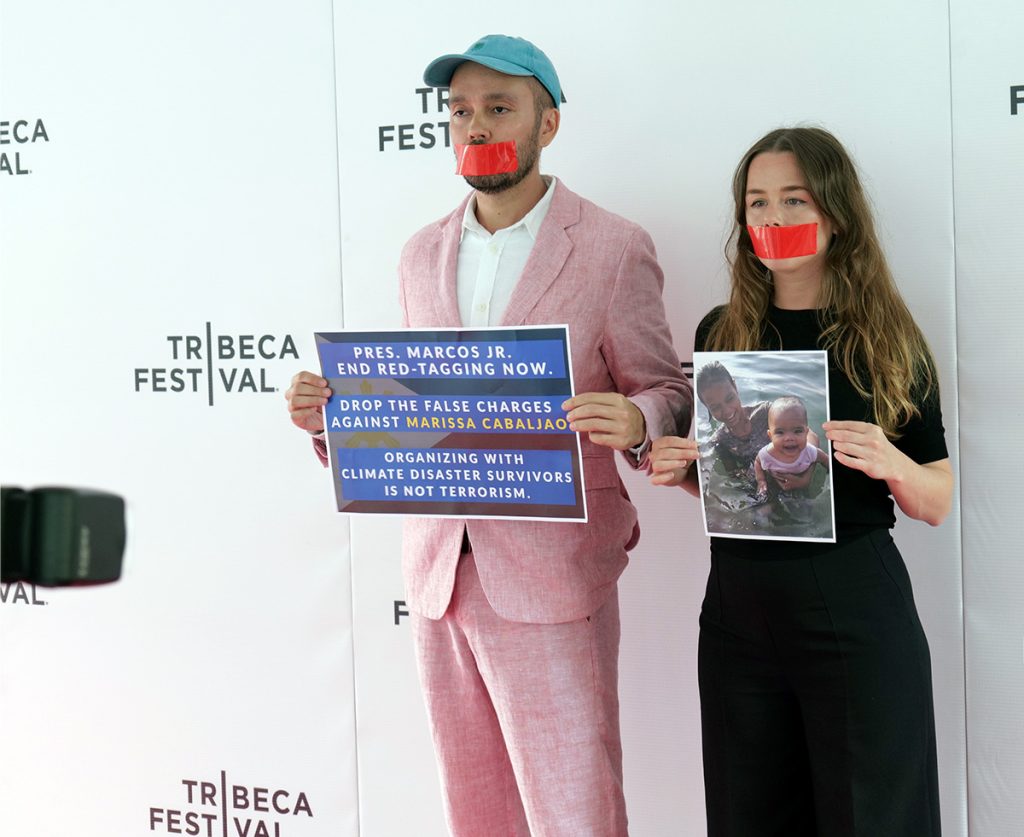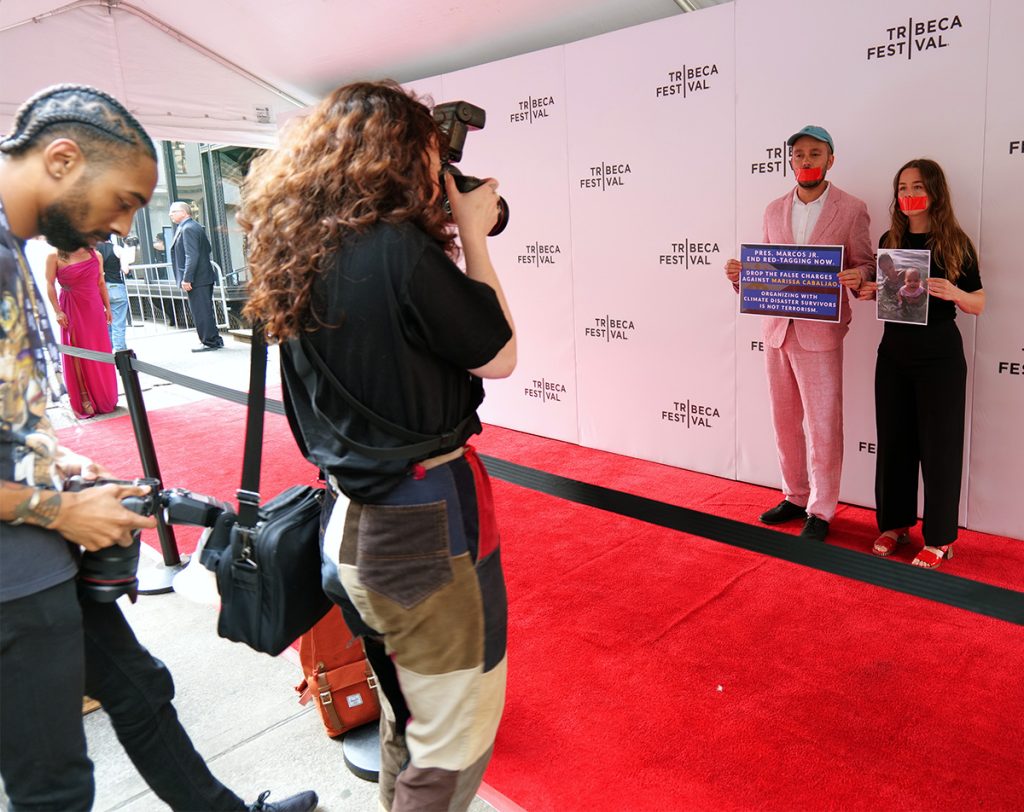Film Producer-Activist Marissa Cabaljao was absent from the June 11 Tribeca Fest red carpet for the film premiere of ASOG because she had been “red-tagged” by the Philippine government. Red-tagging is a violent and oppressive authoritarian tactic – long criticized by the United Nations – used by the Philippine government to silence critics.
It frames activists and journalists as “communist terrorists,” and Filipino law enforcement can wrongfully imprison them – and even murdered them. A report by the UN Commissioner for Human Rights said that “police repeatedly recovered guns bearing the same serial numbers from different victims in different locations,” suggesting some victims were unarmed at the time of their killing and weapons were planted.
The practice has become more escalated and widespread in recent years, despite the new administration of Ferdinand Marco Jr. declaring they would end it.
In February 2020, while ASOG was in the throes of production, Philippine police raided Marissa Cabaljao’s office, planted guns and explosives and arrested her along with her 1-year-old Malaya. The film’s producer and director are the child’s godparents. After they were released on bail, Marissa went into hiding to flee the false charges and avoid extrajudicial assassination.
She has been hiding for the last 3.5 years, unable to see her three young children. Marissa was the spokesperson for the People Surge, the Philippines largest alliance of climate disaster survivors. For nearly a decade Filipino-Canadian director Devlin has been working with Cabaljao, first documenting her organizing work in 2014.
“Marissa remains in hiding while her children, including her four year old, are under surveillance – just due to their mom’s activism to protect the environment and land rights in the Philippines. We call on President Marcos Jr to swiftly drop the false charges against Marissa. The world is watching,” Director Seán Devlin was quoted as saying in a press release.
The Philippines is one of the most dangerous places for journalists and activists, with investigative watchdog Global Witness ranking it the fourth deadliest country in the world for land and environmental defenders. Meanwhile, the Philippines has consistently ranked as the deadliest country in Asia for land and environmental defenders.
Under the previous Duterte regime, the country saw a staggering increase in threats against environmental defenders, with the government framing activists and journalists as “communists” and “terrorists” in order to unlawfully jail and silence activists.
ASOG
ASOG follows Jaya, played by Rey Aclaoa, non-binary Filipino school teacher and a comedian, on a road trip to a drag pageant as they seek to rebuild their life and livelihood. ASOG is an experimental narrative that incorporates documentary-style elements in a matrix of surreal comedy and social portrait realism. Director Seán Devlin explores climate change, LGBTQ+ issues, and the impact of colonialism on contemporary Philippines.
Along the journey, Jaya encounters people who are enduring the impacts of climate change, including a Sicogon Island community whose homes were devastated by Super Typhoon Haiyan in 2013. Residents were soon after displaced by corporate land developers that used the storm’s aftermath to swoop in to build a resort.
The community on Sicogon Island continues to fight for the rights to their land, and pressured by the film’s production, the company complicit in the displacement of the community – Ayala Land, the largest real estate company in the Philippines (with an office in Tallahassee, FL) – has rebuilt 150 homes out of 784 they have promised to the community.
The film is also backed by award-winning Executive Producers Adam McKay and Alan Cumming. Adam McKay said of the film: “When I first saw ASOG I was floored by the world the film took me into, the depth of the artistry, and the feelings I experienced for characters on the other side of the planet.”
Gregg W. Morris can be reached at gregghc@comcast.net, profgreggwmorris@gmail.com



